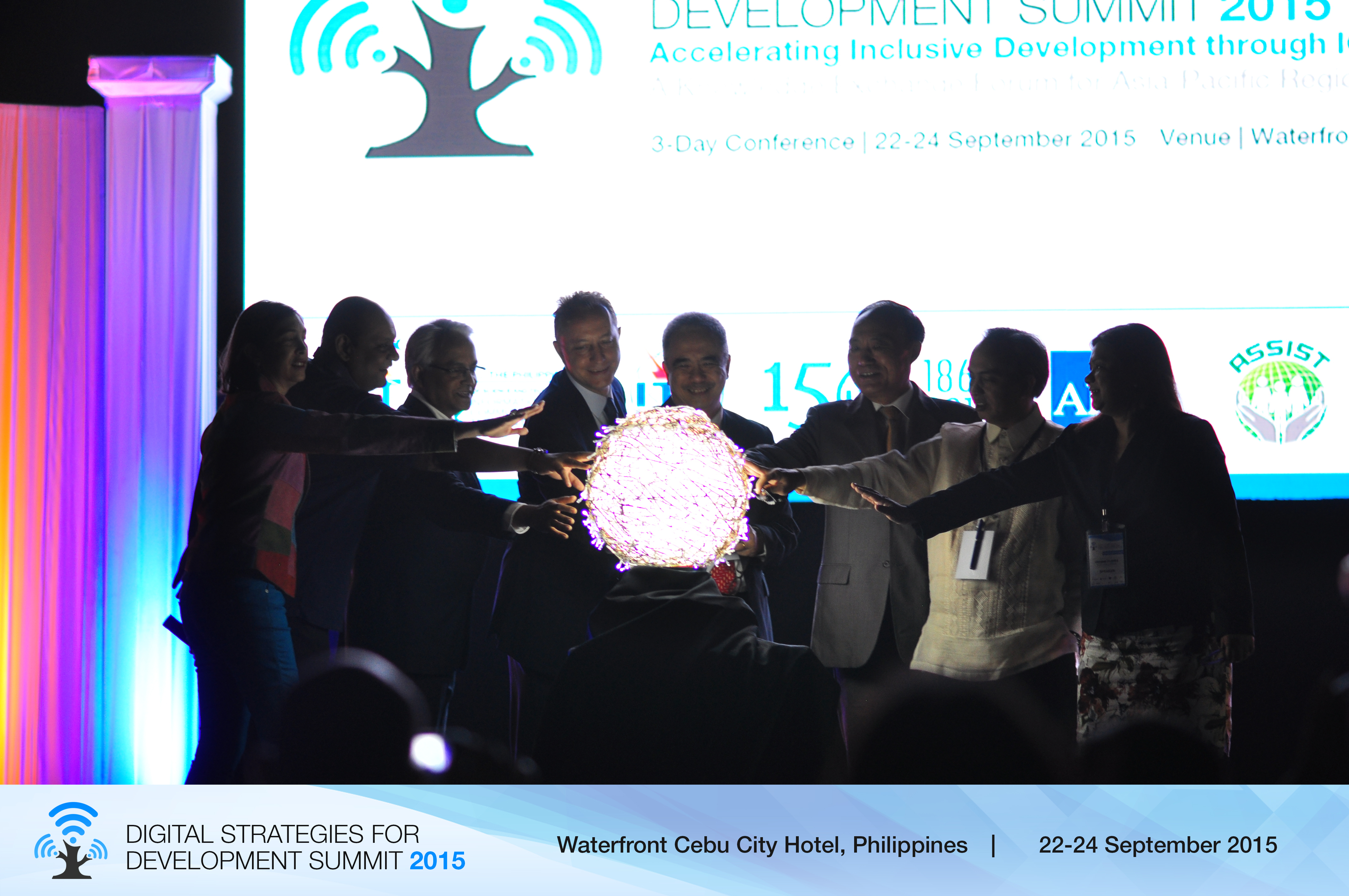Technology for development took the center stage at the 2nd Digital Strategies for Development Summit (DSDS), held at Waterfront Hotel, Cebu City, Philippines on Sept. 22 to 24.
Almost 700 people—composed of international and local delegates, speakers, sponsors, partners, and organizers—attended the event, which highlighted the role of ICT innovation in developing these social domains: education, employment, SME and entrepreneurship, gender equality, agriculture, healthcare and social protection.
The event was organized by the Philippine Department of Science and Technology-Information and Communications Technology (DOST-ICTO), International Telecommunications Union (ITU), the Telecentre Foundation, Asian Development Bank (ADB), and Asia Society for Social Improvement and Sustainable Transformation (ASSIST).
With the theme, Accelerating Inclusive Development through ICT Innovation, DSDS 2015 held six plenary sessions and nine breakout sessions, all of which were launched to equip the participants with the knowledge and tools that could potentially bridge digital divide among different sectors in society today, especially those in rural areas.
“DSDS 2015 is intended to stimulate dialogue and debate, as well as discovery and partnerships between various actors in the sectors. We must seize this opportunity to learn, to grow and to continue the process of inclusive development,” said Bart Edes, ADB Director of Poverty Reduction, Gender, and Social Development Division.
“DSDS is one of the flagship conferences of ASSIST. We believe that digital technologies can provide and enable solutions for most of the socio-economic challenges we face. Providing an international platform to exchange knowledge, experience and build networks is essential to further the development landscape. DSDS fulfils this goal,” said Sreenivas Narayanan, ASSIST’s Founder and Managing Director.
According to ITU Secretary General Houlin Zhao, there is a need to tap ICT resources from both the private and public sectors in order to decrease digital divide.
“As an answer to the digital divide, governments must look towards directly servicing people through [ICT] centres,” he said. “ICT entrepreneurs are the key to drive innovation, and have the unique potential to impact global and regional economic growth and employment in the long-term.”
Among the globally renowned speakers were ITU Secretary General Houlin Zhao, DOST Secretary Mario Montejo, ADB Director of Poverty Reduction, Gender, and Social Development Division Bart Edes, Intel Corporation Regional Director for Corporate Affairs, Asia Pacific & Japan, Anjan Ghosh and DOST-ICTO Deputy Executive Director Bettina Quimson.
DSDS 2015’s sponsors are Intel, Accenture, Micrsoft, Globe Business, Asus, and Smart. Its strategic partners include AsianNGO, Philippine Chamber of Commerce and Industry (PCCI), Grameen Foundation, Plan International, Edukasyon.ph, Philippine Society Information Technology Educators Foundation Inc. (PSITE), TechSoup Asia, Molave Foundation, Beyond Access Philippines, Cebu Chamber of Commerce and Industry, International Rice Research Institute, Deutsche Gesellschaft für Internationale Zusammenarbeit (GIZ), ProGED, Geeks in Cambodia, National Confederation of Cooperatives (NATCCO), National Youth Commission, Caucus of Development NGO Networks (CODE-NGO), InfoComm Technology Association of the Philippines (ITAP), and SunStar Media Group.
For more information: www.dsds.org.ph


